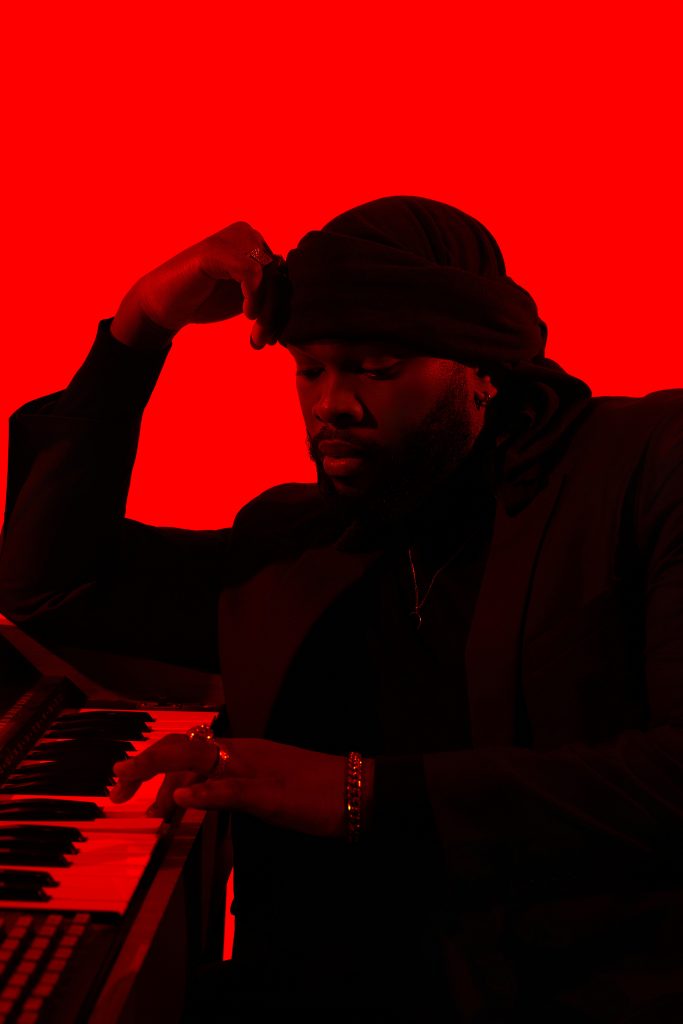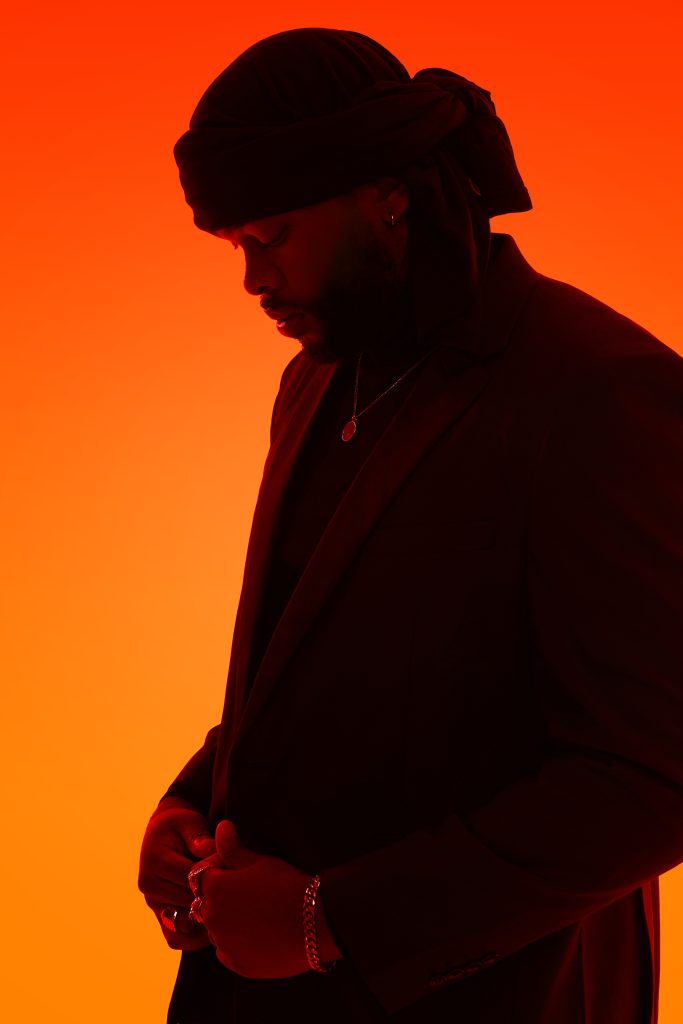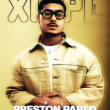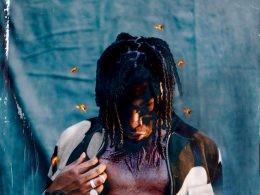Jeffrey Benson’s origin story reads like the opening verse of a powerful anthem—pulsing with the relentless energy of Lagos, where music is woven into the fabric of everyday life. Growing up in Ajao Estate, he was surrounded by sounds that would become the foundation of his artistry: Nigerian beats at family gatherings, R&B filling his home, barbershop tunes, heated debates with his brothers and cousins over the best rappers of the day, and perhaps the most impactful one was his Uncle T-Joe’s prominent affluence in the Nigerian music industry.
Dreams ignited, Benson found himself writing his own lyrics, inspired by the voices and stories around him. This early blend of African music and Western influences crafted the unique, genre-blending sound that defines his music today. But Benson’s journey hasn’t been a straightforward melody. Despite family ties to the industry through his uncle, T-Joe, he faced skepticism from his dad about music as a sustainable path. Still, Benson’s resolve only deepened. In 2020, he transformed his defiance into a scintillating 7-track EP titled, “Sorry Dad, I Do Music Now,” earmarking the end of a long desired dream and the beginning of a blooming reality.
4 years in, 1 album, 2 EPs and several singles later, he stays fervently pursuing music while balancing life as a business analyst and educator in Canada, deftly navigating two worlds to fund and fulfill his creative ambitions. For Benson, this path is more than a pursuit of fame; it’s a mission to shape the soundscape and redefine African representation in music. And with his latest project, “Non Stop/Go Low” – Jeffery Benson dives deeper into Afrobeats, exploring his voice and reaching listeners across borders, sharing his story one song or two at a time. His, is truly a tale of tenacity fueled by adept creativity.

Looking back at your origins, what aspects of your childhood shaped you into who you are today?
Growing up in Lagos, Nigeria, I was surrounded by music. The city itself has a rich musical culture—from street parties to barbershop speakers playing tunes. My family was no different; my parents played Nigerian songs and R&B, and my brothers debated over who was the best rapper in the U.S. or U.K. My cousins, who were rappers, inspired me to start writing my own lyrics early on. This exposure to diverse music shaped my sound today, blending African lyrics and beats with R&B, rap, and pop.
Which part of Lagos did you grow up in?
I grew up in Ajao Estate on the mainland. Ajao had its music icons, like Baba Keke, who ran a record label. I remember seeing him at the barbershop, and I’d also spot artists like Charlie Boy around. Music was everywhere in my neighbourhood.
Considering your family’s musical ties, why didn’t your dad approve of your music career?
I think African parents often appreciate entertainment but hesitate when it comes close to home. They fear the financial instability that can come with a music career. For my dad, music wasn’t seen as sustainable. Even though my uncle T-Joe was in the industry, that didn’t make it any easier for my dad to accept.
How did your uncle T-Joe impact you, especially since he struggled initially?
T-Joe, my mom’s younger brother, showed me that success in music takes time. He began by selling CDs, but he made a name for himself, eventually marketing big artists like P-Square and D’banj. Watching his journey inspired me, though my dad didn’t fully understand his career. It was similar to explaining TikTok careers to non-tech-savvy parents today. T-Joe also influenced my taste in Nigerian music, exposing me to artists when American music dominated our airwaves.

Which artists inspired you to pursue music?
My earliest inspirations were Biggie, Tupac, and Lil Wayne, thanks to my brothers. Lil Wayne became my favorite, and in Nigeria, Naeto C was huge for me—he made education cool with lines about his degree, challenging the stereotype of the “gangster” rapper. Naeto C also showed me that Nigerian rap could be fresh and original.
Given your early exposure to foreign music, how did you find your own sound and lean into Afrobeats?
My uncle’s CD collection helped me explore Nigerian artists like Lagbaja and Wande Coal, who made me see the depth of local music. Wande’s “Mushin to Mo’Hits” album was transformative, as I could relate to his baritone voice. When Burna Boy emerged, his sound resonated with me too, and I gravitated towards artists with deeper tones, like BOJ and Black Magic.
Growing up, your dad wasn’t supportive of your music. How did you push through?
My dad initially saw it as a hobby, not something serious. But after I got my master’s degree, he voiced concerns, comparing the lifestyle in music to athletics, where there’s a discipline he respects. He worried about the industry’s immoral temptations, but I had a “coconut head.” I respected his advice but stayed determined. I even set boundaries, like not relying on substances for creativity—my rule is if it doesn’t come to me naturally, I shouldn’t do it. So, I bought my own recording equipment to avoid late-night studios and kept working.
Are you doing music full-time now?
No, I balance a 9-5 as a business analyst and teach part-time in Canada. Pursuing music alone isn’t feasible here; you have to be practical to avoid struggling financially. It’s my “secret identity”—people are often shocked to see I juggle both.
How does this dual career impact you?
It’s beneficial, really. One student even signed up for my class because he recognized me from my music! I think people only care about your journey when you’ve made it, so I stay focused.

What influences your music?
Knowing I’m good motivates me. Afrobeats is more than a genre—it’s cultural representation, and I feel I’m helping redefine Africa’s image. I see myself as a Pan-Africanist, aiming to inspire young talent and show that there are healthy ways to succeed in the industry. I want to be a role model for parents to feel comfortable when their kids choose music.
Let’s discuss your latest singles, “Nonstop” and “Go Low”
They’re pure expressions of my art, no pressure to meet trends or a “Nigerian sound.” I recorded them without overthinking and just shared the tracks to see how people reacted. People label them “Afropop” or “Afrofusion,” but to me, they’re Afrobeats. The songs are part of a bigger project, “Testing Waters”, where I’m exploring my sound.
The two-pack single approach is trendy. Why did you go that route?
It’s like A/B testing in marketing, where you gauge reactions to see what resonates. I dropped these two as a way to understand my audience better, tweaking my music accordingly. I’m analyzing listener data, countries where I get streams, and using that for targeted ads.
How does your business side influence your music career?
It gives me an edge, especially since I manage myself. I do all the ad campaigns, analyse the data, and budget for effective promotion. My sound speaks for itself; I just need the right platforms. With more support, I’d expand, but even now, I try to stay smart and hands-on with the brand.
How do real-life experiences shape your music?
Music reflects life, whether it’s a conversation, a movie, or personal experiences. My process often brings out these themes subconsciously; I’ll freestyle and then build lyrics around the feelings I expressed. It’s only after recording that I realise the deeper meaning, like connecting a breakup song to real events.

What’s your favourite part of making music?
The recording process is therapeutic, especially after a stressful week. It’s like a weight lifting off my shoulders. The toughest part is promotion; it’s challenging to get people to listen when they’re caught up with trending topics.
What’s the main lesson you’ve learned?
To stay humble and open to constructive criticism. Friends might tell you a song pitch isn’t working or suggest vocal practice, which helps prepare you for bigger stages. It’s a continuous learning journey.
What are you grateful for?
I love that my journey is documented through my music, each song capturing memories. It’s like a photo album I can pass down, with each track holding meaning from significant moments.
Any advice for young, independent artists?
First, build a passionate team. Know your purpose; if you’re serious, you’ll withstand challenges. Don’t worry about parental disapproval—parents usually come around when they see success. Learn to monetize, understand publishing rights, perform shows, and stay proactive. With faith and focus, you’ll be good.










